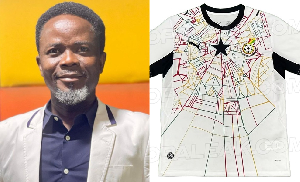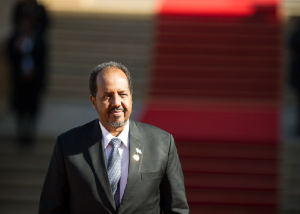Accra, Aug. 9, GNA - The Integrated Social Development Centre (ISODEC) and civil society organisations from six countries in West Africa have launched a sub-regional Rights-Based Advocacy (RBAIII) Programme to enhance better coordination of efforts.
They also outdoored the West Africa Rights-Based Advocacy Network, a group of like-minded non-governmental organisations, interested in the use of right-based approaches to enforce citizens' rights.
Mr. Bishop Akolgo (Ed: correct), Executive Director, ISODEC, said on Thursday that the RBA III would focus on three key themes of economic justice, essential services and gender advocacy in the next three years. Key issues to be dealt with include the use of appropriate tools and methods for monitoring poverty and inequality, poverty reduction strategies and the Millennium Development Goals.
In addition, citizens in the sub-region would be mobilised to resist the Economic Partnership Agreements (EPA) and work towards trade justice and regional integration as alternatives to free trade and fair trade.
Mr. Akolgo said RBAIII sought to build on the achievements of RBA II by consolidating and expanding the social spaces opened up for ISODEC and its constituents.
The maiden edition (RBA I) of the programme resulted in the establishment of the Centre for Pubic Interest Law (CEPIL), a leading public interest litigating and human rights body in the sub-region, the Centre for Budget Advocacy (CBA), a pioneer in pro-poor budgeting in sub-Saharan African and the National Coalition Against the Privatisation of Water (NCAP), which led a successful campaign against privatisation of urban water in Ghana.
Mrs. Magdalene Kannae, Gender Policy Advisor, Institute of Local Government Studies, who launched the programme said although it was ambitious, there was no doubt that the aims could be achieved. "We encourage all concerned with the equitable and sustainable development of this country and the West African sub-region to show interest in and support this programme in every way they can." Mrs. Kannae lauded ISODEC's contribution to the country's socio-economic development since its inception in 1987 through support to the poor, marginalised, underserved and disadvantaged in all parts of the country.
"Over the past period, ISODEC has turned its attention to the sectors and targeted groups that require its services," she noted. Professor Ademola Ariyo, Director, Centre for Public-Private Cooperation, called for partnership among civil society groups, saying it was the only way they could wield stronger competitive power. He said it was time civil society organisations focused more on the effect of underdevelopment instead of always giving the reasons for the trend. Selected organisations from Nigeria, Mali, Niger, Senegal, Burkina Faso and Sierra Leone would be the focal points for the implementation of RBAIII in those countries. 09 Aug. 07
General News of Thursday, 9 August 2007
Source: GNA












